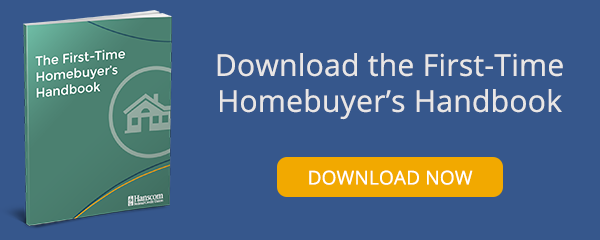It's frustrating realizing your money is going toward someone else's mortgage when you're paying rent month after month. Make this the year your money goes toward a home of your own!
Here are four things that'll get you on that road to home ownership this year:
1. A Credit History
Most people buy their first home with a mortgage, and in order to qualify for a mortgage, you'll need a credit history. You build your credit history by applying for and using credit responsibly. If you're employed or have regular income, apply for a credit card and use it over the next six months. This means:
- Keep your spending on the card less than 25% of your available credit to keep your credit utilization low. Using more than 25% of your available credit on any credit card will result in a drop in your credit score, something your future mortgage lender will be looking at closely.
- Pay your credit card bill in full each month, if possible. Paying it in full every month shows lenders you have good cash flow and can handle your credit.
- Do not pay your bill late or miss a payment. Remember that credit score? Few things will sink it faster that a late or skipped payment. It may even prevent you from getting a mortgage, so be meticulous about paying your bills before they're due.
2. A Down Payment
The old rule of thumb was that you had to have 20% of the purchase price saved for a down payment.
This would mean for a $300,000 dollar home, you would have to save $60,000, a prohibitive amount, especially for a first-time homebuyer.
But what you might not know is depending on your loan type and credit score, you might only have to save 3% of the purchase price. You may even qualify for a no-money-down loan!
Knowing that a 20% down payment isn't always necessary can buoy your enthusiasm for saving. If you're looking for a home in the $300,000 range, you could be on your way to home ownership with $9,000 saved for a down payment!
Keep in mind there are other costs and fees once you have your offer accepted by the seller, such as title fees, survey and appraisal fees, insurance, recording fees, taxes, and more, all of which are complex, highly variable, and dependent upon the state in which you live. A rule of thumb for these expenses is 2 to 5% of the purchase price. Sometimes you can roll the closing costs into your loan, but then you'll be paying interest on those costs over time.
3. A Documentation File
When you've found the home you want to buy, you'll want the mortgage process to move along without a hitch.
Unfortunately, a major cause of delay occurs when mortgage applicants don't have all their paperwork ready and in order.
An easy way of ensuring delays don't happen is to be prepared. You can get a file set up in your computer or file cabinet and start collecting the documents you'll need.
These documents include:
- Tax returns from the last two years
- Proof of income, including W-2s from the last two years and pay stubs from the last month or two. If you're self-employed, you'll need additional documentation, such as profit-and-loss statements, two to three years of personal and business tax returns, and an accounting of your business debts.
- Alimony or child support documentation, including a copy of the court order and proof that deposits are being regularly made if you'll be relying on this income to pay your mortgage
- Financial account statements, including those for banks, credit unions, retirement, and brokerage accounts that you've listed on your application
- Gift letters if friends or family are giving you money to help you buy a home
- A photo id, such as driver's license, passport, or other government-issued identification
Knowing where all your paperwork is can save valuable time in the mortgage process, so make an effort to get organized as soon as you can.
4. A Pre-qualification or Pre-approval Letter
When you're ready to start looking for your new home, having a pre-qualification or pre-approval letter in hand is a must, especially in competitive housing markets where homes get multiple offers. A pre-qualification letter basically tells sellers that your financial institution is willing to let you borrow a certain amount for a mortgage based on the information you've given them. However, it's not a guarantee of mortgage approval.
This is where having organized paperwork will pay off. You can submit everything quickly to your lender and be pre-qualified in as little as a day as long as your financial information can be verified.
Also, it's important to understand that a mortgage pre-qualification or pre-approval will require a hard credit pull, which will affect your credit score. It's imperative, then, that your credit is in good shape before you start the application process.
Hanscom FCU makes the mortgage process easy. It's free and you can apply on line. Once you're pre-qualified and you've found the house you've been looking for all your life, our mortgage experts can advise you on the best mortgage for your needs.
Our First-Time Homebuyer's Handbook can help you navigate the process of finding and financing your first home. It's free and you can download it here.
Others are reading:




.jpg)









Comment